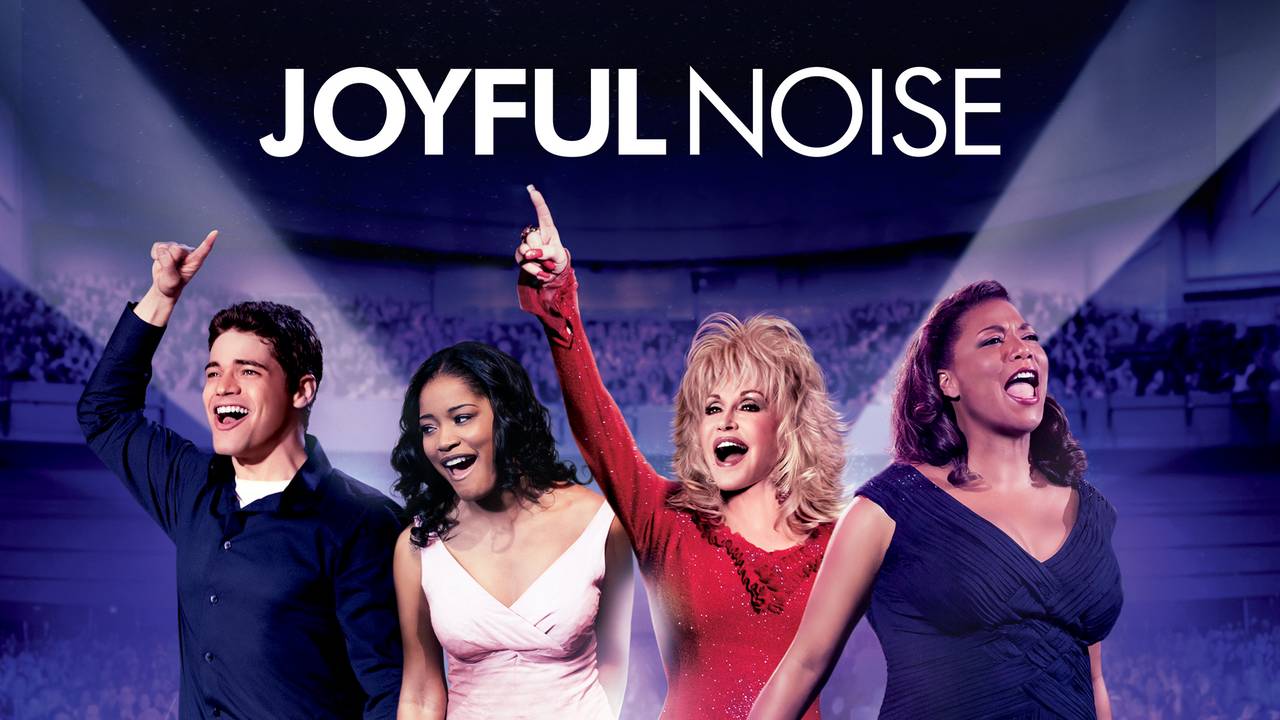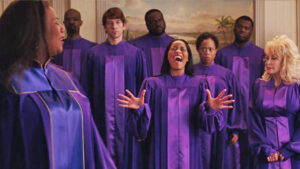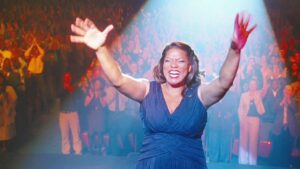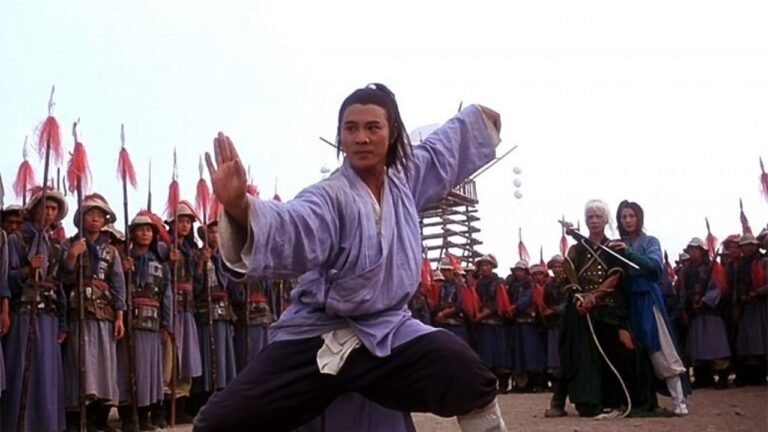
“Joyful Noise” directed by Todd Graff, hit theaters in 2012 with the intention of combining heartfelt drama and uplifting music into a family-friendly film. Featuring powerhouse performances from Queen Latifah, Dolly Parton, Keke Palmer, and Jeremy Jordan, “Joyful Noise” sought to strike a chord with audiences through a story of community, competition, and reconciliation. Despite its star-studded cast and musical prowess, the film received mixed reviews and had a modest box office performance. Here’s a detailed exploration of what worked, what didn’t, and how it fared overall.
The film is set in the small town of Pacashau, Georgia, where the local church choir has long been a source of community pride. The choir, known as the Divinity Church Choir, faces a significant change when its long-time director, Bernard Sparrow (Kris Kristofferson), passes away. Vi Rose Hill (Queen Latifah) is appointed the new choir director, much to the chagrin of Bernard’s widow, G.G. Sparrow (Dolly Parton), who had hoped to assume the position herself.
As Vi Rose and G.G. clash over the future direction of the choir, they also grapple with personal family issues. Vi Rose struggles to raise her two children, Olivia (Keke Palmer) and Walter (Dexter Darden), following her husband’s deployment in the military. Olivia, the choir’s star singer, finds herself drawn to G.G.’s rebellious grandson, Randy (Jeremy Jordan), who has recently moved to town and joins the choir. Randy’s unconventional musical ideas further intensify the conflict between Vi Rose and G.G.
With the national “Joyful Noise” choir competition on the horizon, the Divinity Church Choir must find a way to overcome their differences, unite their voices, and regain their harmony—both on and off the stage.

Characters and Performances
Queen Latifah delivers a strong performance as Vi Rose, depicting a nuanced character balancing leadership and motherhood amidst numerous challenges. Her grounded portrayal conveys both strength and vulnerability, though the character’s rigidness at times lacks depth in terms of emotional evolution.
Dolly Parton brings her signature charisma and warmth to the role of G.G., infusing the character with humour and heart. Parton’s presence lights up the screen, and her chemistry with Queen Latifah drives much of the film’s interpersonal drama. Her comedic timing and presence are standout aspects.
Keke Palmer shines as the talented and ambitious Olivia. Her vocal performances are riveting, and she captures the youthful struggle for independence and recognition effectively. Palmer’s character serves as a narrative bridge between the older and younger generations in the film.
Jeremy Jordan brings a youthful energy and fresh perspective to the story as Randy. His character’s rebellious charm and vocal talent create interesting dynamics, particularly with Olivia and the choir at large. While his storyline offers some new angles to the narrative, it also adheres to several predictable tropes.

“Joyful Noise” excels when it comes to its musical sequences. The film features an array of gospel, pop, and R&B numbers, many of which are performed dynamically by the cast, especially Queen Latifah, Dolly Parton, Keke Palmer, and Jeremy Jordan. The energy and emotion in these performances are palpable, lifting the film and connecting with the audience on an auditory level.
Todd Graff’s direction attempts to blend comedy, drama, and musical elements to create an uplifting experience. However, the film often struggles with tonal inconsistencies, wavering between heartfelt moments and lighter, more humorous segments. The pacing occasionally drags, particularly in interludes between musical performances.
The visual aesthetic of “Joyful Noise” is bright and vibrant, capturing the spirit of the small-town setting and the lively nature of the choir performances. Alec Hammond’s production design complements the narrative with simple, yet effective settings that emphasize the film’s focus on community and music.
Central to “Joyful Noise” are themes of community, family, and reconciliation. The film explores the dynamics between different generations and the challenges of leadership and collaboration within a diverse group. These themes resonate well, though they sometimes feel oversimplified, glossing over deeper conflicts in favour of more predictable resolutions.

The conflict between old-school gospel traditions and contemporary musical innovation is a key narrative thread. This theme is embodied in the conflict between Vi Rose and Randy, as well as between Vi Rose and G.G. The film attempts to strike a balance between respecting tradition and embracing change, with varying degrees of success.
The characters grapple with personal growth and the importance of forgiveness throughout the film. Vi Rose and G.G. must come to terms with their own flaws and learn to work together, reflecting broader themes of understanding and acceptance.
“Joyful Noise” had a production budget of approximately $25 million. Upon its release, the film grossed around $30.9 million worldwide, making it a modest financial success but falling short of blockbuster status. Despite its star power and musical flair, the movie struggled to attract a wide audience, performing modestly at the box office.

On Rotten Tomatoes, “Joyful Noise” received a mixed reception. It holds a critic score of approximately 33%, which indicates a largely underwhelming response from critics who cited the film’s tonal inconsistencies and predictable plot as significant drawbacks. However, audiences were more forgiving, with an audience score of around 56%, reflecting a more appreciative view of the film’s heartfelt themes and musical elements.
“Joyful Noise” is a movie that shines in its musical performances and the charismatic appeal of its leading actors, but falters in delivering a cohesive and engaging narrative. Queen Latifah and Dolly Parton bring life and charm to their roles, while Keke Palmer and Jeremy Jordan provide a vibrant, youthful counterpoint. Despite its entertaining moments and admirable themes, the film’s mixed execution and modest box office performance highlight its struggle to fully resonate with a broader audience.
For fans of musical dramas and family-oriented stories, “Joyful Noise” offers an enjoyable, if somewhat uneven, cinematic experience. It may not hit all the high notes, but its heart, humour, and harmonious performances make it a noteworthy, if not exceptional, entry in the genre.




